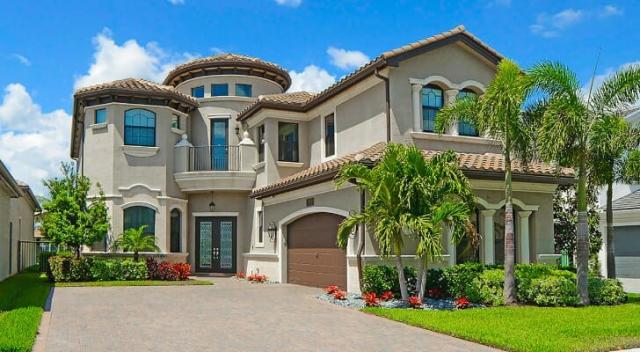The Importance of Landscaping in Estate Management

Why Landscaping Matters
When you think of estate management, you might imagine paperwork, legal stuff, maintenance, or security. But one important part that people often forget is landscaping.
Landscaping is much more than planting flowers or cutting grass. It’s about planning and designing outdoor spaces so they’re beautiful, useful, and easy to care for. If you manage an estate, a gated community, or even a large home, landscaping should be at the top of your list.
In this post, I’ll show you why landscaping is so important in estate management, using simple language and clear points.
Boosts Property Value
One of the biggest reasons to invest in landscaping is it raises property value. Studies show that well-landscaped properties can be worth 5% to 20% more than similar properties without good landscaping.
Imagine you’re buying a house or renting an apartment. Would you pick the one with overgrown weeds and cracked walkways? Or the one with green lawns, neat paths, and shade trees? Good landscaping makes any property look cared for and inviting.
Key Benefits:
- Better first impressions (curb appeal)
- Higher selling or rental price
- Faster sales or occupancy
Makes Outdoor Spaces Usable and Enjoyable
Good landscaping turns empty land into real living spaces. It’s not just for looks—it gives people places to relax, socialize, and enjoy life.
Examples of Usable Spaces:
- Patios for dining or parties
- Shaded benches for relaxing
- Playgrounds for kids
- Walking paths for exercise
- Water features like ponds or fountains
When you manage an estate, making these outdoor spaces usable increases the property’s appeal and keeps residents happy.

Supports Safety and Accessibility
Landscaping isn’t just about beauty—it also keeps people safe. Proper design can prevent accidents and make it easy for everyone to move around, including the elderly or people with disabilities.
Safety Features in Landscaping:
- Well-lit paths to prevent tripping
- Clear walkways without obstacles
- Non-slip paving materials
- Ramps instead of stairs where needed
- Drainage to avoid flooding and muddy areas
Estate managers should always think about these practical needs when planning landscaping.
Defines and Organizes the Property
Landscaping helps organize large estates so they don’t feel messy or confusing. Shrubs, hedges, fences, and trees can mark boundaries and guide people.
Uses for Defining Space:
- Create privacy screens
- Separate public and private areas
- Hide unsightly views (like garbage bins)
- Direct foot traffic with clear paths
A well-organized estate is easier to maintain and more pleasant to live in.
Supports Sustainable Practices
Good landscaping can help protect the environment and save money. Modern estate management values sustainability, and landscaping is a big part of that.
Sustainable Landscaping Ideas:
- Plant native species that need less water
- Use drip irrigation to save water
- Build rain gardens to manage stormwater
- Add trees for shade, reducing energy costs
- Avoid chemicals by choosing pest-resistant plants
By thinking green, estate managers can reduce water bills, cut maintenance costs, and help the planet.
Reduces Long-Term Maintenance Costs
While landscaping requires upfront investment, it can actually save money over time if done right.
Cost-Saving Tips:
- Choose low-maintenance plants
- Use mulch to reduce weeds
- Plant ground cover instead of grass to reduce mowing
- Strategically plant trees for natural cooling
This makes it easier and cheaper to keep the estate looking great.
Improves Health and Well-Being
Nature is good for us. Access to green spaces has been shown to:
Health Benefits:
- Reduce stress and anxiety
- Encourage exercise
- Improve mood
- Support social connections
For estate managers, this means happier, healthier residents who are more likely to stay and take pride in their community.
Enhances Community Image and Reputation
Landscaping also builds the estate’s reputation. Visitors, potential buyers, and tenants will judge a property based on how it looks outside.
A well-landscaped estate sends the message:
“We care about quality. We care about our residents. We manage this property well.”
This is essential for marketing, attracting high-quality tenants, and building trust with stakeholders.
Helps Manage Environmental Challenges
Thoughtful landscaping can also prevent problems like:
Environmental Solutions:
- Soil erosion (with retaining walls or ground cover)
- Flooding (with proper grading and drainage)
- Air pollution (trees and shrubs filter air)
- Heat islands (trees provide cooling shade)
This makes the property safer, more resilient, and more comfortable.
Adds Beauty and Joy
Finally, let’s not forget the simple truth: landscaping makes places beautiful.
Flowers, trees, lawns, and water features all add color, texture, and life to an estate. Beauty attracts people. It creates pride of ownership and makes any estate feel like home.
Conclusion
Landscaping is not an optional extra in estate management—it’s a critical investment. It increases property value, improves safety, supports sustainability, reduces costs, enhances resident well-being, and builds reputation.
Whether you manage a single home, a gated community, or a commercial estate, good landscaping is one of the smartest choices you can make.
It’s about creating spaces that work well, look beautiful, and make people happy to live there.
Ready to Upgrade Your Estate?
If you’re an estate manager, property owner, or developer, consider investing in professional landscaping services. It’s not just an expense—it’s an investment in the future value, appeal, and success of your property.





Add comment